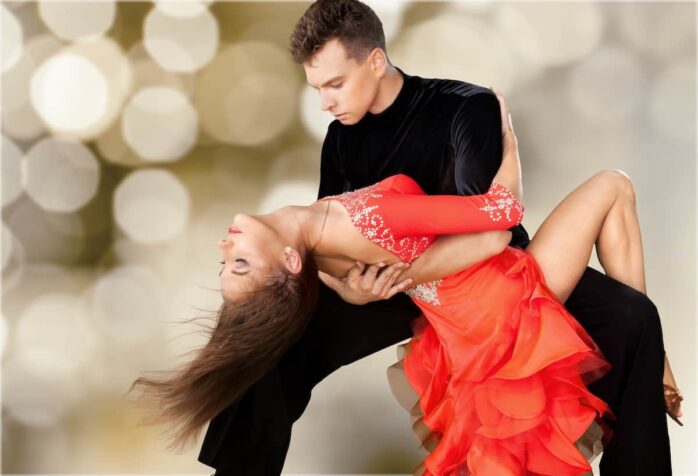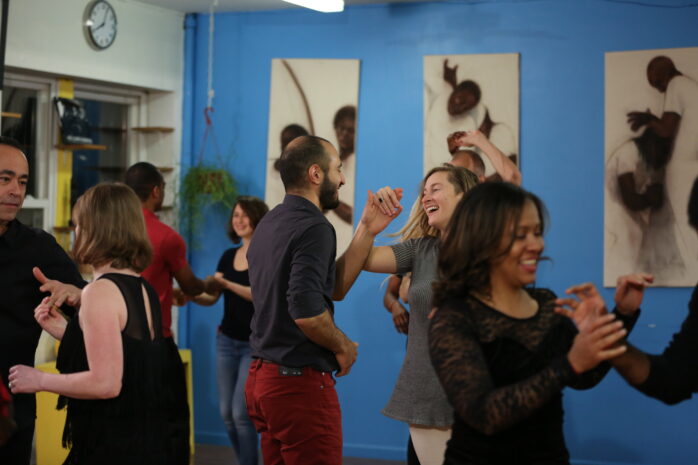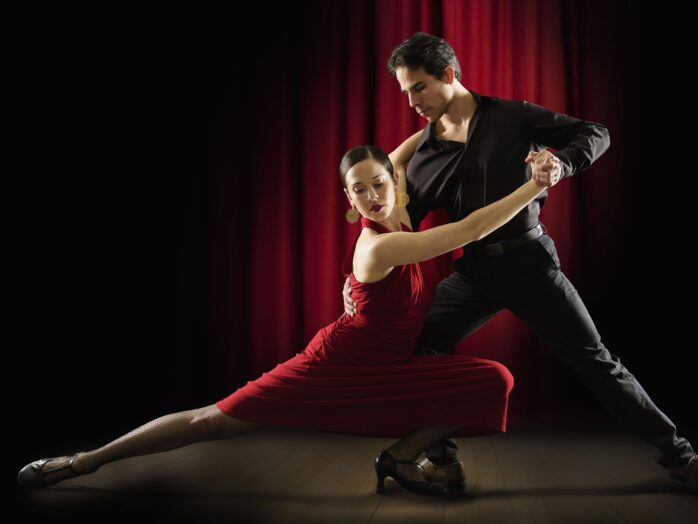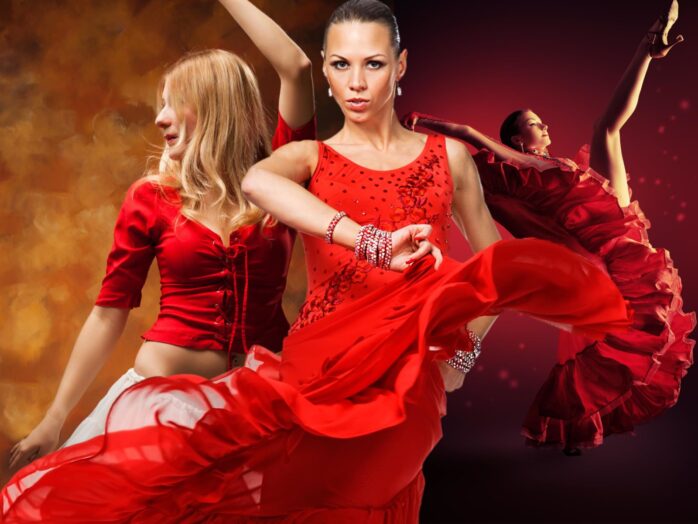
Salsa is a popular Latin dance that originated in Cuba. It is a vibrant, energetic dance that is enjoyed by people of all ages around the world. The name salsa comes from the Spanish word for sauce, which reflects the spiciness of the music. Salsa is danced to a variety of Latin American music styles, including Cuban son, cha-cha-cha, and mambo. The basic steps of salsa involve a simple forward and backward motion, with occasional turns thrown in. One popular variation of salsa is called New York Style, which features rapid footwork and complicated spins. Salsa can be danced both socially and competitively. In recent years, it has become one of the most popular dances in the world, with millions of people enjoying its sensual rhythms.

The Different Styles of Salsa
There are many different styles of salsa, each with its own unique flavor and set of moves. Here’s a list of the more popular Salsa styles:
- Cuban Salsa – also known as Casino; characterized by its fast-paced footwork and intricate turns. This salsa stye is often danced In couples but can also be done solo.
- Puerto Rican Salsa – this salsa style emphasizes Marcia beat patterns and emphasizes dancing in place.
- Colombian Salsa – known for its use of body isolations and hip movements.
- LA Salsa – this is a more relaxed version of the dance, often incorporating smooth movements and simple turns.
- New York Salsa – this salsa style is a more aggressive form of the dance, featuring sharp turns and complicated footwork.

Learning Salsa
A salsa class is the best way to learn how to salsa. You will usually find salsa classes at your local community center or recreation center. The class will teach you the basic steps of salsa and how to lead and follow. You will also learn how to turn and how to salsa with different partners. As you progress, you will learn more advanced salsa steps and tricks. At the end of the class, you should be able to salsa with anyone. If you’re interested to learn salsa, check out this website and join their classes: https://www.sydneysalsaclasses.com.au/ .
How Many Years Does it Take to Learn Salsa
Many people are drawn to salsa for its vibrant music and energetic dance moves. But how long does it take to learn this popular Latin dance? The answer may surprise you. While some people may be able to pick up the basic steps after a few lessons, it generally takes longer to become proficient in salsa. This is because salsa is a complex dance that combines many different elements, including timing, footwork, and partner interaction. As with any skill, the more time you spend practicing, the better you will become at salsa. So if you’re looking to master this dance, be prepared to put in the hours. But rest assured, the effort will be well worth it. After all, there’s nothing quite like taking to the dance floor and showing off your hard-earned moves.

The Basic Steps
The basic steps of salsa are relatively easy to learn and can be performed to a variety of music tempos.
The basic step of salsa consists of four counts: two quick steps followed by two slower ones. Start with your left foot and perform two quick side steps to the left. Then, bring your right foot up to meet your left foot and take two slow backward steps. Repeat this sequence, starting with your right foot this time. As you listen to the music, begin moving your feet to the beat. Salsa is typically danced on the balls of the feet, so keep your heels slightly raised as you move. As you become more confident with the basic step, you can add flourishes such as turns or spins. With practice, you will be able to execute these moves with grace and fluidity.
Advantages of Learning How To Dance Salsa
Learning how to dance salsa can offer many benefits. For one, it is a great way to stay fit and active, while also enjoying a fun and social activity. It is a low-impact form of exercise that is easy on the joints and can help to improve balance and coordination. It involves a lot of movement and can be quite aerobic. In addition, salsa dancing is a great way to meet new people and make friends. When you dance salsa, you often do so with a partner. This gives you a chance to interact with others and bond over your shared love of the dance. Salsa is also a great way to learn about other cultures. Salsa dancing originated in Cuba, and has since been adopted by countries all over the world. As a result, it is a great way to experience the culture and music of other countries. Moreover, research has shown that salsa dancing can have numerous health benefits. For example, it can help to reduce stress levels, improve mental well-being, and even boost cognitive function. Finally, salsa is simply a lot of fun. It is an enjoyable way to spend an evening, and it can be very satisfying to master the complicated steps and moves. Whether you want to get in shape, meet new people, or simply have fun, learning how to dance salsa can be a great decision.

Dances Similar to Salsa That You Can Also Learn
Although salsa is undoubtedly the most popular Latin dance, it is by no means the only one. In fact, there are a number of other dances that share many of the same moves and rhythms. One of these is the cha-cha-cha, which is also a fast-paced dance originating from Cuba. Unlike salsa, however, cha-cha-cha is danced with a partner and uses a hard shoe instead of a soft shoe. Another Latin dance similar to salsa is the mambo. The mambo originated in Cuba as well, and like salsa, it is a fast-paced danced performed solo or with a partner. However, the mambo has a more complex rhythm than salsa, and the steps are often more difficult to learn. As a result, it is not as commonly danced as salsa. Nevertheless, all three of these dances – salsa, cha-cha-cha, and mambo – share similarities in terms of style and steps, making them popular choices for those who enjoy Latin dancing.
Other dances similar to Salsa include merengue and bachata. All of these dances originated in the Caribbean, and they all feature a distinctive 2/4 or 4/4 beat. The steps themselves vary depending on the dance, but they all tend to be relatively simple and easy to learn. As a result, even beginner dancers can quickly pick up the basics of these popular Latin dances.








